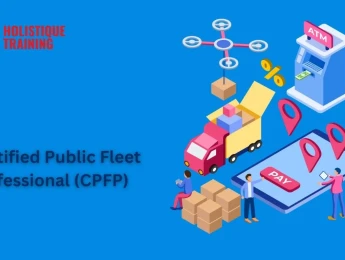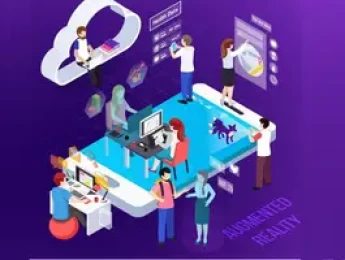To become a successful HR manager, individuals need diverse skills encompassing various aspects of human resource management. Strong communication skills are essential for effective interaction with employees, management, and other stakeholders.
HR managers must also possess excellent interpersonal skills to build positive relationships and resolve conflicts within the workplace. A solid understanding of employment laws and regulations is crucial to ensuring compliance and fair treatment of employees.
Analytical skills are a massive asset for tasks such as workforce planning, data interpretation, and decision-making, coupled with a passion for showing attention to detail when managing various HR processes, from recruitment to payroll.
Leadership abilities are also vital for guiding HR teams and influencing organisational culture positively. Additionally, adaptability and problem-solving skills enable HR managers to navigate human resources' dynamic and sometimes challenging nature. Continuous learning and staying updated on industry trends, coupled with all of these skills contribute to the effectiveness of an HR manager and ensure that an HR department runs smoothly and in tandem with other departments across the business.
Upon completion of this course, participants will be able to:
- Recognise HR's vital role at the line manager level for organisational success.
- Create a SMART development plan to apply learned skills effectively in the workplace.
- Cultivate self-awareness for personal and team development.
- Understand key HR activities to support organisational objectives.
- Collaborate with line managers in people management.
- Enhance crucial skills for optimal workforce placement.
- Proactively address performance and behavioural issues.
- Develop individuals to their full capability.
This course is designed for anyone responsible for managing an HR department or anyone aspiring to enter into a career in the HR field. It would be most beneficial for:
- HR Managers
- Aspiring HR Managers
- HR Business Partners
- Administration Professionals
- Project Managers
- Change & Control Managers
- Data Analysts
- Recruiters
- Team Leaders
- Supervisors
This course uses a variety of adult learning styles to aid full understanding and comprehension. Participants will view videos and presentations to understand the role of HR within day-to-day management processes.
They will participate in an open discussion to discover challenges and prepare for role-playing activities regarding conflict and difficult conversations, which will prepare them for the investigation and communication required in handling real-life scenarios.
Day 5 of each course is reserved for a Q&A session, which may occur off-site. For 10-day courses, this also applies to day 10
Section 1: The Importance of HR Duties within Various Departments
- HR's impact on employee onboarding and orientation
- Employee training and development in different departments
- HR's contribution to performance management across teams
- Managing employee relations and conflict resolution
- HR's involvement in compensation and benefits administration
- Ensuring compliance with employment laws and regulations
- Diversity and inclusion initiatives in different departments
- Employee health and well-being programs and their departmental relevance
- HR analytics for data-driven decision-making in different business functions
Section 2: Effective Recruitment
- Understanding the recruitment process
- Crafting compelling job descriptions
- Utilising online job platforms effectively
- Social media recruitment techniques
- Importance of employer branding in recruitment
- Conducting targeted talent searches
- Effective screening and shortlisting methods
- Streamlining interview processes
- Assessing cultural fit in recruitment
- Negotiating job offers successfully
- Onboarding strategies for new hires
- Continuous improvement in recruitment practices
Section 3: Document Management & Secure Filing
- Organising digital files and folders
- Implementing version control
- Secure file storage solutions
- Access control and permissions
- Document retrieval and search techniques
- Metadata and tagging for efficient classification
- Compliance and legal considerations
- Backup and disaster recovery strategies
- Integrating document management systems
- Best practices for secure filing
- Automation in document handling
Section 4: HR’s Involvement in Performance Management
- Setting clear performance expectations and goals
- Conducting effective performance evaluations
- Providing constructive feedback and coaching
- Addressing performance issues and improvement plans
- Utilising performance appraisal tools and systems
- Incorporating employee development in performance management
- Aligning performance with organisational objectives
Section 5: Succession Planning & Progression Opportunities
- Creating a talent pipeline within the organisation
- Succession planning for key positions
- Skill assessment and development plans
- Diversity and inclusion in succession planning
- Communicating succession plans to employees
- Developing mentorship and coaching programs
- Progression opportunities for career growth
Section 6: Managing Sickness & Absence
- Monitoring and recording employee absence
- Implementing return-to-work interviews
- Managing short-term and long-term sickness
- Strategies for reducing absenteeism
- Legal aspects and compliance in absence management
- Supporting employee well-being and health
- Communicating absence policies to staff
Section 7: Reward & Recognition Opportunities
- Aligning rewards with organisational goals
- Incentive schemes and performance-based bonuses
- Non-monetary recognition and appreciation strategies
- Employee benefits and perks
- Personalised recognition approaches
- Creating a positive and inclusive recognition culture
- Communication strategies for rewards and recognition
Upon successful completion of this training course, delegates will be awarded a Holistique Training Certificate of Completion. For those who attend and complete the online training course, a Holistique Training e-Certificate will be provided.
Holistique Training Certificates are accredited by the British Assessment Council (BAC) and The CPD Certification Service (CPD), and are certified under ISO 9001, ISO 21001, and ISO 29993 standards.
CPD credits for this course are granted by our Certificates and will be reflected on the Holistique Training Certificate of Completion. In accordance with the standards of The CPD Certification Service, one CPD credit is awarded per hour of course attendance. A maximum of 50 CPD credits can be claimed for any single course we currently offer.
- Course Code PH1-130
- Course Format Classroom, Online,
- Duration 5 days














